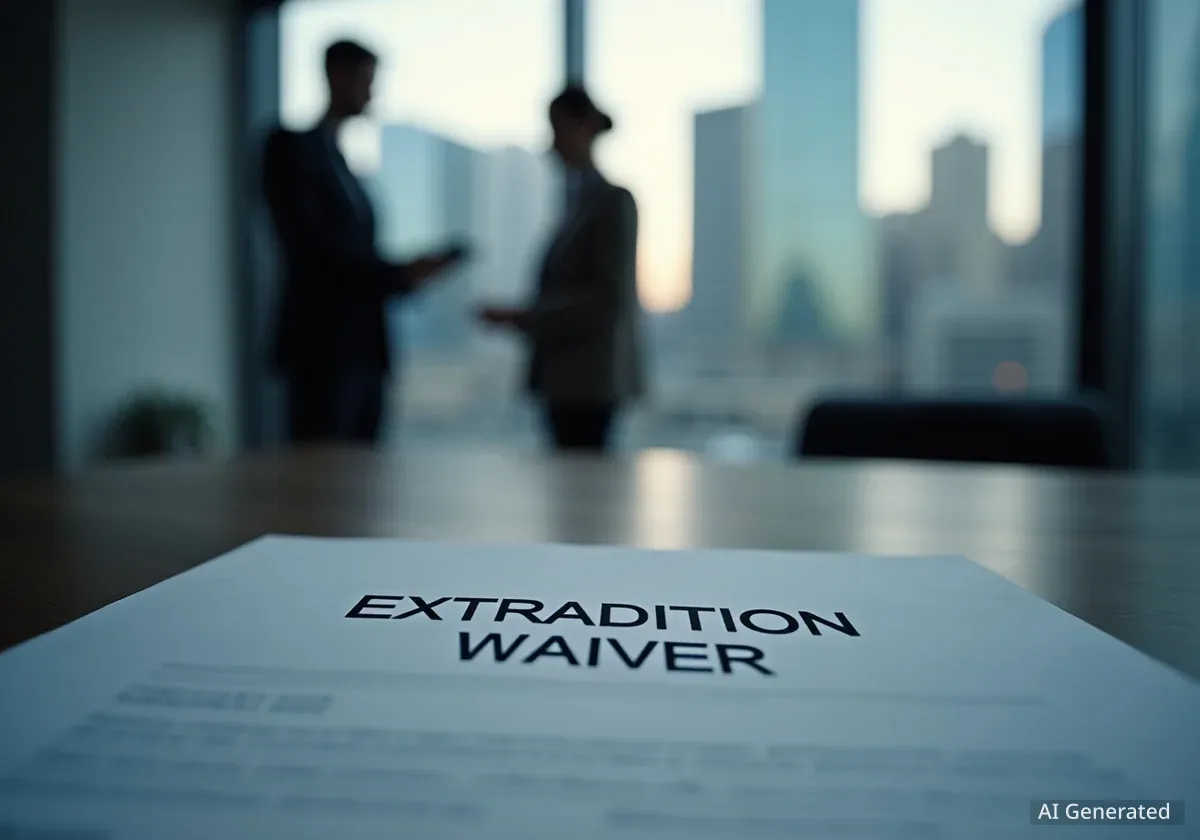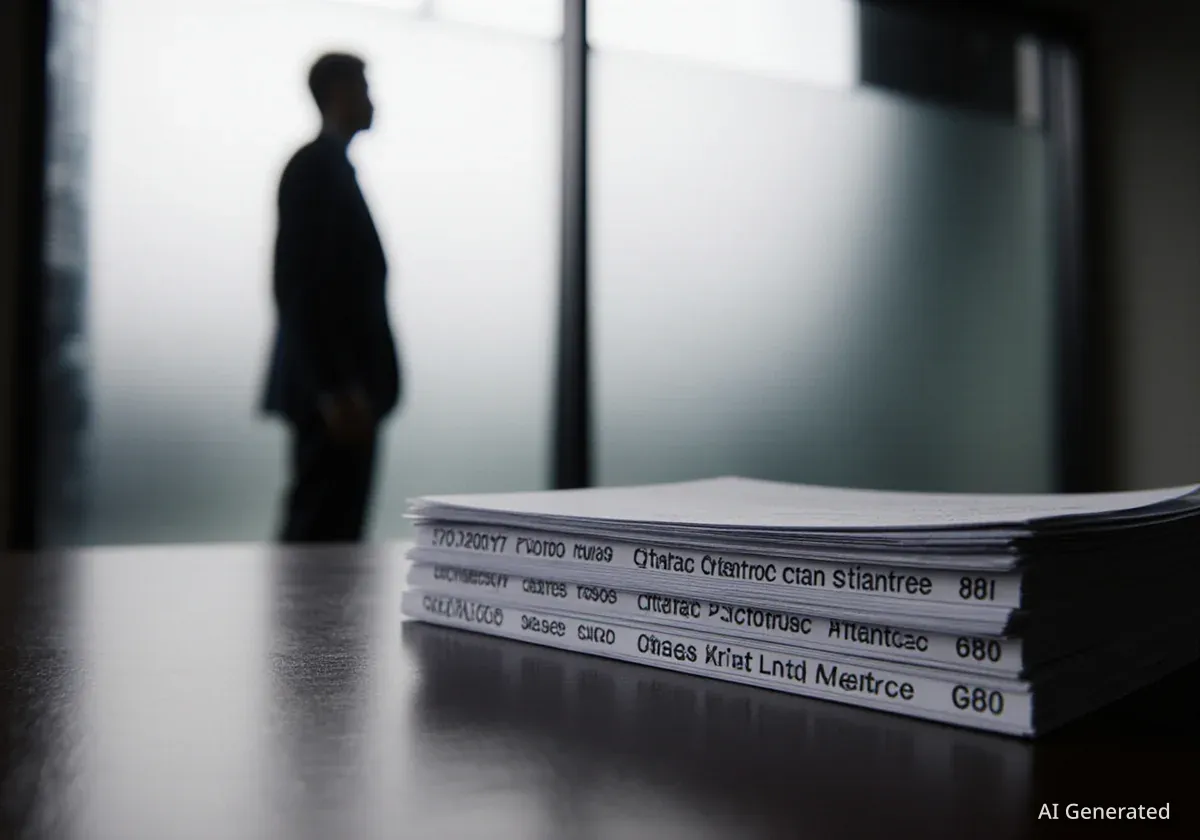Stephen Webster, the former head of the South Shore-based Success Real Estate, will be returned to Massachusetts to face multiple financial crime charges. After his arrest in Florida, Webster appeared in a Palm Beach County court on October 7 and agreed to waive his right to an extradition hearing.
Webster was taken into custody in Florida on September 30 on a fugitive from justice charge. He is currently being held in a Palm Beach County jail while awaiting transfer to Massachusetts authorities, where he has been indicted on charges including fiduciary embezzlement.
Key Takeaways
- Stephen Webster, former principal of Success Real Estate, was arrested in Florida on September 30.
- He appeared in a Florida court on October 7 and waived his right to fight extradition.
- Webster faces charges in Massachusetts, including fiduciary embezzlement and other financial crimes.
- He will be transported back to Massachusetts to be arraigned on the indictments.
Background of the Allegations
Stephen Webster was a prominent figure in the South Shore real estate market as the principal of Success Real Estate. However, an investigation led to his indictment by a Massachusetts grand jury on serious financial allegations. The charges center on claims of fiduciary embezzlement, a crime that involves the misuse of funds entrusted to an individual in a professional capacity.
While specific details of the indictment have not been fully released, such charges typically involve the mishandling of client money, such as escrow accounts or deposits related to property transactions. As a real estate broker, Webster held a fiduciary duty to his clients, meaning he was legally and ethically bound to act in their best interests.
Understanding Fiduciary Duty in Real Estate
A fiduciary duty is the highest standard of care in law. For a real estate broker, this means they must be loyal, confidential, and accountable to their clients. This duty legally requires them to protect a client's financial interests, especially when handling large sums of money during a home sale or purchase. A breach of this duty can lead to severe civil and criminal penalties.
The indictment suggests that authorities believe Webster violated this trust for personal financial gain. The investigation that culminated in these charges likely involved a thorough review of his business's financial records and possibly testimony from former clients or employees.
Arrest and Legal Proceedings in Florida
Webster was located and arrested in Florida on September 30, nearly a week before his court appearance. His arrest was executed based on a fugitive from justice warrant, which is issued when an individual charged with a crime in one state is found in another.
On Tuesday, October 7, Webster was brought before a judge in Palm Beach County. During this hearing, he made the critical decision to waive his right to an extradition hearing. This legal step is significant because it means he will not contest his return to the state where the charges were filed.
What Does Waiving Extradition Mean?
Extradition is the formal process of one state or country transferring a suspected or convicted criminal to another. An individual has the right to a hearing to challenge this transfer. By waiving this right, the accused person agrees to be returned to the demanding state voluntarily, which significantly speeds up the legal process.
Had Webster chosen to fight extradition, it would have initiated a more prolonged legal battle in Florida, requiring Massachusetts prosecutors to formally prove to a Florida court that he was the person named in the indictment and that the charges were valid. His waiver clears the way for a more immediate transfer.
He is currently being detained in a local jail in Palm Beach County as officials from both states coordinate the logistics of his transportation back to Massachusetts.
The Charge of Fiduciary Embezzlement
The primary charge mentioned in the indictment, fiduciary embezzlement, is a serious white-collar crime. It differs from general theft because it involves a person who was legally entrusted with access to the assets they are accused of stealing.
Key Elements of the Crime
For prosecutors to secure a conviction for fiduciary embezzlement, they typically must prove several points beyond a reasonable doubt:
- A Fiduciary Relationship Existed: Prosecutors must first establish that Webster had a formal, trust-based relationship with the alleged victims, which is inherent to the broker-client dynamic in real estate.
- Entrustment of Assets: It must be shown that clients entrusted their money or property to Webster as part of that relationship.
- Fraudulent Conversion: The core of the charge is proving that Webster fraudulently converted these assets for his own use. This means he used the funds for purposes other than what was intended by the client.
- Intent to Defraud: Prosecutors must also demonstrate that his actions were intentional and not the result of an accounting error or mistake.
Convictions for such crimes can result in significant prison time, hefty fines, and court-ordered restitution to the victims. The case against Webster will likely focus on detailed financial records from Success Real Estate to trace the flow of client funds.
Next Steps for the Case in Massachusetts
With the extradition process streamlined, the focus now shifts to the legal proceedings in Massachusetts. Once Webster arrives, he will be formally arraigned on the indictment in a Massachusetts court. During the arraignment, the specific charges against him will be read, and he will be asked to enter a plea of guilty or not guilty.
The waiver of extradition is a key procedural step that allows the Massachusetts justice system to move forward with the prosecution. The case will now proceed within the state where the alleged crimes occurred.
Following the arraignment, the court will address the matter of bail. Prosecutors may argue for him to be held in custody pending trial, citing the fact that he was located out of state, which could be presented as a flight risk. Webster's defense will have the opportunity to argue for his release on bail or personal recognizance.
The case will then move into the pre-trial phase, which involves discovery, where both the prosecution and defense exchange evidence. This can be a lengthy process, especially in complex financial crime cases. Ultimately, the case could be resolved through a plea agreement or proceed to a full trial where a jury would decide Webster's guilt or innocence.





